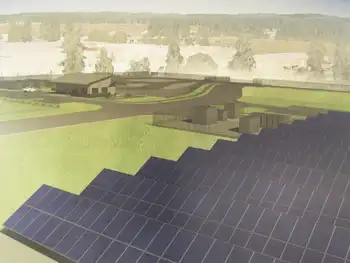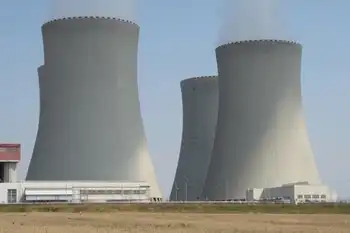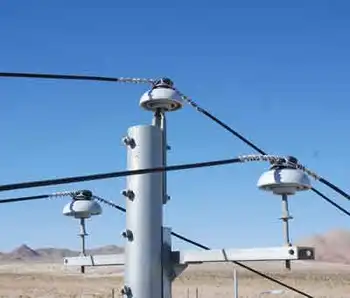Nuclear renaissance could stall, says group
In a report based on a 3-1/2 year study of the nuclear industry, the Waterloo, Ontario-based Center for International Governance Innovation said new reactor construction will be held back by a series of economic, security, and waste disposal issues.
"Despite some powerful drivers, a revival of nuclear energy faces too many barriers compared to other means of generating electricity," Trevor Findlay, the report's author, said in a statement.
He argues that, despite claims in the industry that nuclear capacity is expanding, there have actually been very few new reactors started in recent years, and that nuclear energy as a percentage of global energy production has actually retreated since 2001.
Standing in the way of new construction are costs that can run up to $10 billion per new reactor, competition from other, cheaper, energy sources, the problem of safely disposing of nuclear waste, and concern about the spread of nuclear weapons, the report said.
"On balance, a significant expansion of nuclear energy worldwide to 2030 faces constraints that, while not insurmountable, are likely to outweigh the drivers of nuclear energy," it said.
This contrasts with expectations of a sharp rise in nuclear generating capacity over the next 20 years due to higher energy demand from emerging nations and a push to reduce global carbon emissions.
The World Nuclear Association, an industry group whose forecasts are often cited by uranium producers, predicts generating capacity could rise by more than 50 percent by 2030, while the number of operating reactors could rise by a third.
In its report, the Center for International Governance Innovation, or CIGI, predicted that new reactor openings will be offset by closure of older reactors.
The study follows recent decisions by the Canadian provinces of Saskatchewan and Alberta not to go ahead with costly reactors that had been contemplated, and the cancellation of a planned build in Ontario.
CIGI was founded in 2002 by Research In Motion co-Chief Executive Jim Balsillie. Canada is the world's No. 2 producer of uranium.
Related News

Summerland solar power project will provide electricity
summerside solar - A proposed solar energy project, to be constructed on municipally-owned property on Cartwright Mountain, will allow Summerland Power to produce some of its own electricity.
On Monday evening, municipal staff described the Solar+Storage project.
The project will include around 3,200 solar panels and storage batteries, giving Summerland Power the ability to generate 1,200 megawatts of electrical power.
This is the amount of energy used by 100 homes over the course of a year.
The solar panels have an estimated life expectancy of 35 years, while the batteries have a life expectancy of 20 years.
“It’s a really big step for a small…





